Should you protest a US Dept. of Veteran Affairs Center for Verification and Evaluation (CVE) determination with the U.S. Court of Federal Claims? A negative CVE determination can be devastating to your company. On October 10, 2014, the U.S. Court of Federal Claims granted construction company, Ambuild’s, a summary judgment motion in its protest against the CVE and the VA’s OSBDU. According to the case Ambuild Co. LLC v. United States, the protest began after Ambuild successfully bid on a VA-issued construction project and the disappointed bidder, Welch Construction, Inc., filed a Small Business Administration (SBA) protest. An agency-level protest was held with the VA OSDBU and CVE. Welch's protest asserted that Ambuild was not controlled by a service-disabled veteran and that the company did not meet SBA size standards, because of its affiliation with a larger construction company. Interestingly, Ambuild is owned entirely by Mark DeChick, an honorably discharged and service-connected United States Marine. CVE first certified Ambuild in 2012 and renewed its certification in March 2014. The SBA denied Welch's protest on the grounds over which it had jurisdiction, and the CVE/OSDBU determined that Ambuild did meet size requirements and was not affiliated with the larger construction company. However, the CVE upheld the protest on grounds unrelated to Welch's protest. Beyond that, CVE disqualified Ambuild from the VetBiz database, making them ineligible to bid on VA SDVOSB set-asides.
Following the CVE's re-verification of Ambuild and 2014, Mr. DeChick sold 20 percent of his company to two separate individuals, retaining 80 percent ownership and remaining the highest-ranking officer and full-time manager of the Construction Company. Notwithstanding these facts, following Welch's protest, the CVE reviewed Ambuild's 2011 operating agreement, which was incidentally updated in 2014, and determined that pursuant to an "involuntary withdrawal" provision in the operating agreement, Mr. DeChick did not have unconditional control of Ambuild. The involuntary withdrawal provision directed that if Mr. DeChick filed personal bankruptcy or became otherwise insolvent, ownership would pass to the remaining 20 percent owners of the business.
According to the court, which would later uphold Ambuild's injunctive relief motion, this language was essentially a copy and paste from New York's LLC Act. CVE did not inform Ambuild that it was reviewing the 2011 operating agreement until it stripped the company of its award and removed it from the VetBiz database. Ambuild appealed the CVE determination to OSDBU's Executive Director according to the Federal Claims Court's findings in Miles Constr. LLC v. United States in 2013, which found that "right of first refusal" provisions did not interfere with the Veteran's ownership.
The OSDBU Executive Director denied Ambuild's appeal and the company filed for injunctive relief with the US Court of Federal Claims three weeks later. The court adopted an expedited schedule for submission of the administrative record and for briefing, which greatly expedited the appeal process. Fewer than 30 days following the submission for injunctive relief, the court held a hearing and issued a preliminary injunction setting aside Ambuild's decertification as an SDVOSB, ordering the VA to restore and build as an approved CVE-certified SDVOSB, and ordering the VA to consider "any bids or offers that have been or will be submitted by Ambuild, disregarding OSDBU's and CVE's grant of Welch's protest."
Analysis
The Court determined that the procurement at issue is governed by the Veterans Benefits, Health Care, and Information Technology Act 0f 2006 ("Veterans Benefits Act"). The court further ruled:
Terminating Ambuild's SDVOSB status without notifying the company or giving it an opportunity to respond to the "unconditional ownership" issue denied Ambuild its procedural due process rights.
CVE's determination that Mr. DeChick did not unconditionally control Ambuild was arbitrary and capricious.
The "arbitrary and capricious" legal standard is the one under which administrative determinations are reversed in most circumstances on appeal. In making its ruling, the Court determined that the CVE's assertion that bankruptcy "does not ordinarily result in the divestiture of ownership" was inconsistent with federal bankruptcy law. According to the Court's decision, a commencement of bankruptcy creates an estate comprised of the debtor's property, meaning that Mr. DeChick's ownership rights would automatically be passed on to the estate, and he would lose his membership rights. The Court found similarly that because the bankruptcy or "involuntary withdrawal" clause did not run afoul of the unconditional ownership provisions of 38 CFR 74.3 (b), then neither did the operating agreement's provisions for transferring shares upon the event of the involuntary withdrawal.
Prejudice
Having a court determine that you are right legally is not the end of the inquiry. It must also find that you were prejudiced by the agency's error. In this case, the Federal Claims Court determined that "absent relief, Ambuild will suffer the loss of opportunities to compete for SDVOSB set-aside contracts, a substantial portion of Ambuild's revenue" and was therefore prejudiced. The Court granted equitable relief and required the VA to consider Ambuild's apparent low bid in response to the solicitation.
Conclusion
Losing a bid protest can sting. Having your SDVOSB status stripped away can make you ineligible to bid on potentially lucrative government contracts. Our law firm specializes in the Government determined process and represents veteran-owned businesses almost exclusively. Veterans Advocacy Law Group is an SDVOSB and spends most of its efforts in helping businesses owned by veterans and service-disabled veterans. If you believe you've been wronged by a CVE determination, please give us a call. We are here to help and will do everything in our power to help your company overcome an unfair or illegal determination.
If you are a Veteran with a business and have a problem with your SDVOSB status, please contact the experienced attorneys at Veterans Advocacy Law Group at (888) 680-9612 or complete an online contact form.

